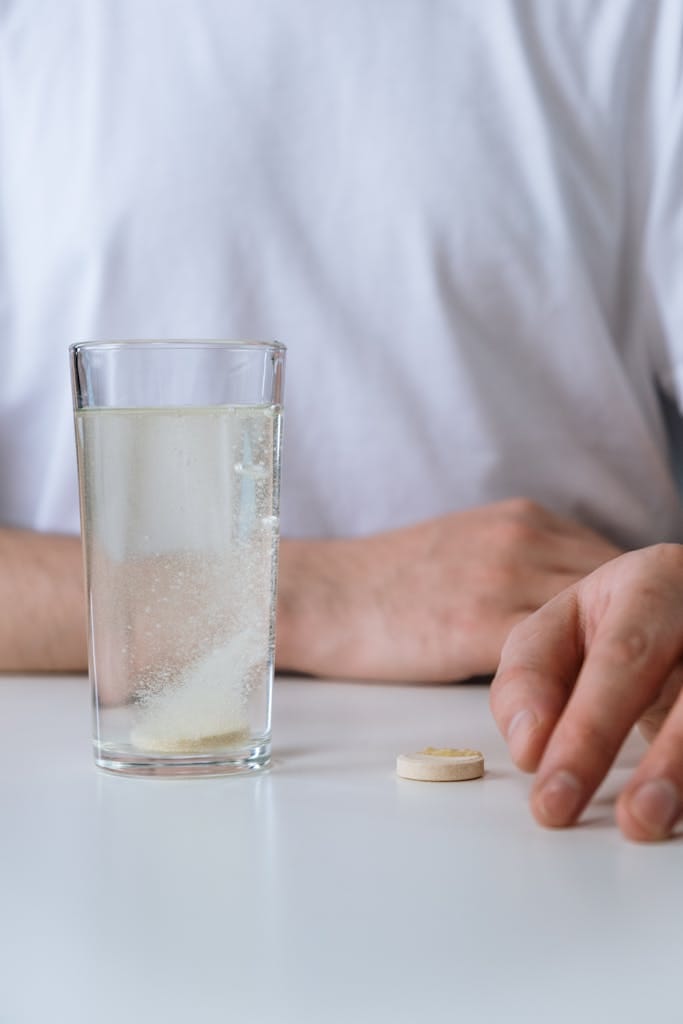FREE SHIPPING OVER $50
Struggling With High Cholesterol? These 10 Natural Supplements Could Be Game-Changers

A high cholesterol diagnosis can feel like a wake-up call. You know it’s a serious risk factor for heart disease, and your doctor may have already discussed a prescription medication like a statin. While these medications are highly effective, many people are looking for a more natural approach to managing their heart health. You want to know if there’s a way to tackle this without medication, or at least in conjunction with a healthy lifestyle.
The good news is that you have options. The world of vitamins and supplements offers a powerful array of natural compounds that have been studied extensively for their ability to help lower cholesterol. These aren’t magic pills, but when combined with a balanced diet and regular exercise, they could be absolute game-changers for your health. We’re going to dive into the science behind high cholesterol and reveal 10 natural supplements that are backed by science and could help you take back control.
The Cholesterol Paradox: What the Numbers Mean
To understand how these supplements work, you first need to understand what cholesterol is and what your numbers mean. Cholesterol is a waxy substance your body needs to build healthy cells. It’s not inherently bad; the problem lies in the balance.
- LDL Cholesterol (“The Bad”): Low-density lipoprotein is the type of cholesterol that can build up on the walls of your arteries, forming plaque. High levels of LDL are directly linked to an increased risk of heart disease.
- HDL Cholesterol (“The Good”): High-density lipoprotein helps carry cholesterol away from your arteries and back to your liver to be removed. High levels of HDL are considered protective for your heart health.
- Triglycerides: These are fats in your blood. High triglycerides can also increase your risk for heart disease. The ultimate goal is to lower your “bad” numbers (LDL and triglycerides) and raise your “good” number (HDL).
10 Natural Supplements That Could Be Game-Changers
Here are 10 of the most researched natural supplements for managing high cholesterol.
1. Psyllium Husk
What it is: A form of soluble fiber made from the husks of the Plantago ovata plant.
How it works: Soluble fiber binds to cholesterol in your digestive tract, preventing it from being absorbed into your bloodstream. It also forms a gel-like substance that helps promote feelings of fullness and can aid in digestion.
Research: Numerous studies have shown that consistent use of psyllium husk can significantly lower LDL cholesterol and total cholesterol levels.
2. Omega-3 Fatty Acids (Fish Oil)
What it is: Essential fatty acids found in fatty fish like salmon and mackerel.
How it works: While Omega-3s have a minimal effect on LDL cholesterol, they are incredibly effective at lowering triglycerides. They also have powerful anti-inflammatory properties that protect the heart.
Research: The American Heart Association recommends Omega-3s for their heart health benefits. It’s a cornerstone dietary supplement for cardiovascular wellness.
3. Niacin (Vitamin B3)
What it is: A B vitamin that helps your body convert food into energy.
How it works: High doses of niacin can lower LDL and triglycerides while significantly raising HDL cholesterol. It’s one of the few supplements that can directly boost your “good” cholesterol.
Cautions: Niacin can cause a side effect known as “niacin flush,” a temporary redness, warmth, or tingling sensation in the skin. It can also cause liver issues in high doses, which is why a doctor’s supervision is essential.
4. Red Yeast Rice
What it is: A fermented rice product that contains a compound called monacolin K, which is chemically identical to the active ingredient in the prescription drug lovastatin.
How it works: It works by inhibiting HMG-CoA reductase, an enzyme the liver uses to produce cholesterol.
Cautions: Because it contains the same active compound as a statin, it can have similar side effects, including muscle pain and liver damage. It’s important to choose a reputable brand with a standardized dose and to use it under a doctor’s care.
5. Plant Sterols and Stanols
What they are: Naturally occurring compounds found in plants.
How they work: Plant sterols and stanols are structurally similar to cholesterol, so they compete for absorption in the intestines. This blocks the absorption of dietary cholesterol, reducing the amount that makes it into your bloodstream.
Research: Fortified foods like orange juice and margarine are available, but supplements offer a more concentrated dose for a stronger effect on lowering LDL.
6. Berberine
What it is: A bioactive compound extracted from several plants.
How it works: Berberine activates AMPK, an enzyme that plays a crucial role in regulating metabolism. It also helps inhibit PCSK9, a protein that interferes with the removal of LDL cholesterol from the blood.
Research: Studies suggest berberine can be as effective as some statins in lowering LDL cholesterol and triglycerides.
7. Coenzyme Q10 (CoQ10)
What it is: An antioxidant produced naturally by the body that is vital for cellular energy production.
How it works: While it doesn’t directly lower cholesterol, it is a vital supplement for anyone taking statins. Statins can deplete the body’s natural CoQ10 levels, which can lead to muscle pain and fatigue. Supplementing with CoQ10 can help alleviate these side effects and protect your heart.
8. Garlic Extract
What it is: A culinary herb with a long history of medicinal use.
How it works: Research suggests that garlic can help lower total cholesterol and LDL, although its effect is often modest. Its anti-inflammatory and antioxidant properties contribute to overall cardiovascular health.
Research: The benefits are more pronounced with aged garlic extract supplements, which have a standardized dose of the active compounds.
9. Artichoke Leaf Extract
What it is: An extract from the leaves of the artichoke plant.
How it works: It works by stimulating bile production in the liver. Bile is made from cholesterol, so more bile means more cholesterol is used and excreted from the body.
Research: Studies have shown that it can help lower total cholesterol and LDL in some individuals.
10. Curcumin (Turmeric Extract)
What it is: The active compound in turmeric, a spice widely used in Indian cuisine.
How it works: Curcumin is a potent anti-inflammatory agent. Chronic inflammation is a key factor in the development of heart disease and plaque formation. By reducing inflammation, curcumin helps support overall heart health.
Research: While not a direct cholesterol reducer like some other supplements on this list, it is an excellent complementary supplement for overall cardiovascular wellness.
Other Tips for Lowering Cholesterol
Supplements are not a standalone solution for high cholesterol. They work best as part of a comprehensive strategy that includes lifestyle changes.
- The Foundation of Diet and Exercise: The most impactful changes you can make are to your diet and physical activity levels. Prioritize fiber-rich foods, healthy fats, and lean proteins while limiting saturated and trans fats. Incorporate regular cardio and strength training to help manage your numbers.
- The Role of Stress Management and Sleep: Chronic stress and lack of sleep can negatively impact your cholesterol levels. Make sure you are prioritizing both for optimal health.
- The Importance of Professional Guidance: The journey to managing your cholesterol should always be done in partnership with your doctor. They can help you monitor your progress, adjust your plan, and ensure your approach is safe and effective.
Taking Control of Your Heart Health
A diagnosis of high cholesterol doesn’t have to be a sentence to a lifetime of medication. These 10 natural supplements, backed by scientific research, offer a powerful and effective way to help lower your numbers and take control of your heart health. By combining these tools with a holistic approach that includes diet, exercise, and stress management, you can create a personalized plan that empowers you to feel better and live a longer, healthier life.
Related Articles
- Struggling With Bloating? L-Glutamine Might Be the Gut-Healing Fix You’ve Been Missing
- Omega-3 Side Effects You’re Not Hearing About—Doctors Say Watch Out for These
- The Truth About NAD+, NMN & NR—Which One Slows Aging Best?
- Your Morning Coffee Could Be Canceling Out Your Vitamins—Here’s What You Need to Know
- Doctors Say: This is the Best Time to Take Probiotics Supplements for Maximum Benefits (Morning on an Empty Stomach)







